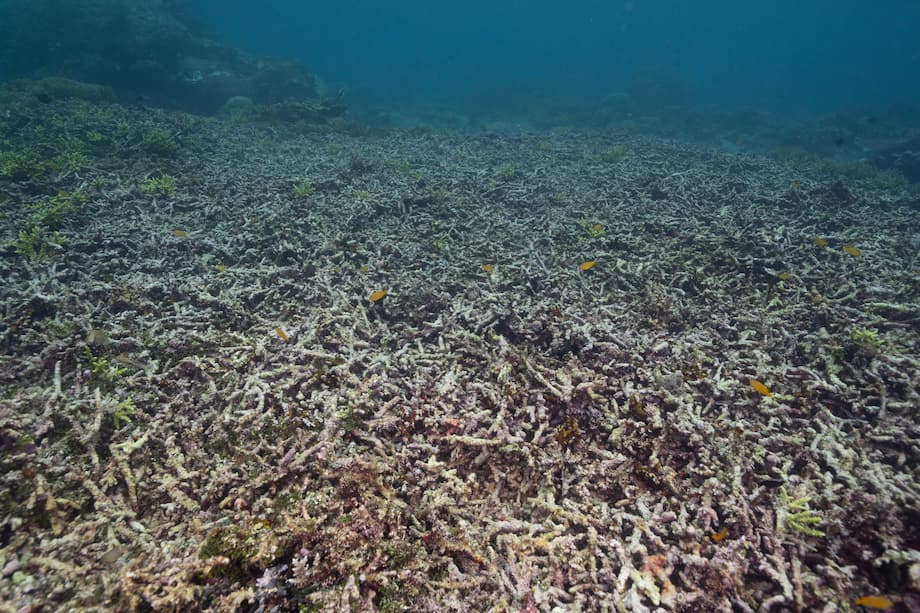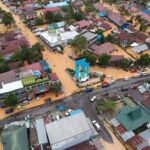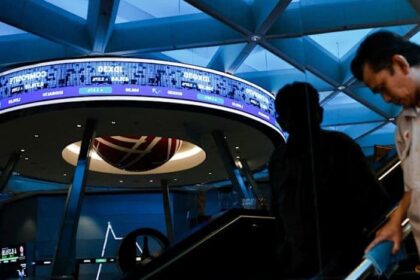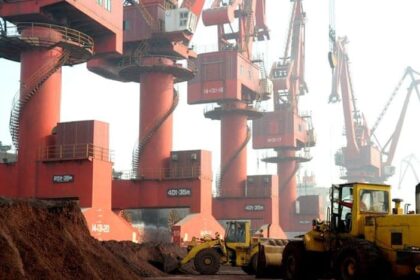A fragile marine sanctuary at a crossroads
Indonesia has allowed PT Gag Nikel, a subsidiary of PT Aneka Tambang (Antam), to restart nickel mining on Gag Island in Raja Ampat on 3 September after a June suspension, despite a 2014 law that restricts mining on small islands and widespread concern about reef damage. Officials say the company earned a green rating in the Environment Ministry’s annual PROPER assessment and has complied with permits. The decision revives a high stakes dispute that pits the global race for electric vehicle minerals against the protection of one of the richest marine ecosystems on Earth.
- A fragile marine sanctuary at a crossroads
- What changed since the June suspension?
- What residents and company surveys reveal
- Is mining legal on small islands?
- How EV and stainless steel demand drives pressure
- Damage risks to reefs, fisheries, and coasts
- Tourism and local livelihoods on the line
- Industry and government responses
- What independent oversight could look like
- Key Points
Evidence of harm has mounted. A 2024 survey commissioned by Gag Nikel itself found that about two thirds of interviewed residents and workers believed the company’s operations had polluted the environment, and 44 percent said mining harmed health. Fishermen reported sediment forcing them farther offshore to find fish, while local ecosystems were hit by barges shuttling ore. Environmental groups say the green rating does not reflect local reality. More than 60,000 people have signed a Greenpeace petition calling for a halt to mining in Raja Ampat.
The Raja Ampat archipelago in Southwest Papua carries rare ecological value. Scientists often call it the crown jewel of the Coral Triangle. Its waters support around three quarters of the world’s coral species and more than a thousand fish species, and the regency includes nine marine protected areas spread across nearly two million hectares. The islands were named a UNESCO Global Geopark in 2023. For Indigenous Papuan communities, reefs and mangroves provide food security and income from small scale fisheries and a growing tourism sector. Open pit nickel extraction on steep, rain drenched islands risks sending loose soil into lagoons and channels, where it smothers corals and clouds the water.
What changed since the June suspension?
Public anger flared in June after images of forest clearing, sediment plumes and ore barges around the islands spread on Indonesian social media under the hashtag SaveRajaAmpat. The government suspended PT Gag Nikel for a review and revoked the permits of four other nickel firms in and around the archipelago. Officials explained that PT Gag Nikel would be monitored rather than stripped of its license because its pits sit outside the area mapped as the geopark, and because it holds long standing approvals. The suspension was lifted on 3 September.
Environment Minister Hanif Faisol Nurofiq announced stricter conditions. The company must strengthen settling ponds that trap muddy runoff before it reaches streams and lagoons. New basins are required to handle heavy rain. The firm must install an air quality monitoring station to track dust, and ministries will tighten oversight of operational boundaries and erosion control. The minister said sanctions will follow if the company breaches these rules.
He presented the conditions as a safeguard rather than a green light to carry on as before.
“We have required PT Gag Nikel to comply with strict environmental provisions so its activities do not harm Raja Ampat. The company must prevent runoff, control emissions and meet monitoring duties. We will take stern action if these obligations are violated.”
Energy officials added that PT Gag Nikel has a production quota and must submit detailed work plans, reclamation commitments and environmental reports. Antam said the company has replanted cleared areas and supported coral conservation. The nickel is shipped to the Weda Bay industrial park, a hub of processing plants that supply stainless steel and battery materials.
What residents and company surveys reveal
The survey funded by PT Gag Nikel in 2024 casts doubt on claims that local impacts are minor. Interviewers spoke with island residents and employees. About two thirds of respondents said mining had polluted the environment. Forty four percent reported health problems they linked to dust and erosion. People complained of constant grit on roofs and floors, coughs and irritated eyes, and streams turning brown after rainfall.
Fishing families described a changing seascape. Sediment plumes were seen near shorelines after downpours. Nets came up empty in coves that used to teem with reef fish, pushing small boats farther offshore in search of catches, a cost increase that hits hardest when fuel is expensive. Several residents pointed to scoured reef flats where barges and small tugs ferry nickel ore to larger ships. Coral heads break under prop wash and anchors. Noise drives fish away.
Activists argue that the government’s reopen decision came without transparent data on reef condition, water quality or sediment loads. They say no independent team has been mandated to collect long term baselines at fixed stations and to publish results in a format the public can track. A credible check would combine underwater surveys, turbidity sensors in rivers and bays, and satellite analysis of soil disturbance and sediment plumes.
Is mining legal on small islands?
Indonesia’s 2014 coastal and small islands law restricts extractive activity on small islands and aims to protect fragile environments and coastal communities. The Constitutional Court underscored in March 2024 that small islands need special protection from high risk industries such as mining. Local governments in Raja Ampat have limited authority over permits, which are issued by the central government.
Officials maintain that PT Gag Nikel operates with valid approvals and outside the geopark boundary. Critics counter that the small islands law should still apply and that revoking four licenses in the same region signals that violations were not isolated. Civil society groups warn that court challenges can restore canceled permits if monitoring is weak. They continue to press for permanent no go zones across the archipelago.
How EV and stainless steel demand drives pressure
Rising global demand for nickel is the backdrop. Indonesia now produces more than half of the world’s mined nickel. The country banned raw ore exports and attracted investment in processing plants. Industrial parks like Weda Bay in North Maluku transformed raw ore into nickel pig iron, ferronickel and higher grade materials that feed stainless steel mills and some electric vehicle battery chemistries. Smelters often rely on captive coal fired power, which increases the carbon cost of the supply chain.
Battery makers use different recipes. Many popular models still use nickel rich chemistries such as NMC and NCMA to extend range. Others use lithium iron phosphate cells that need no nickel at all. Most mined nickel, however, still goes to stainless steel, which means the EV transition is not the only pressure point. That makes governance important across all end uses.
Coral reef conservationist Mark Erdmann has spent years working in the region and called Raja Ampat a global reference point for marine biodiversity.
“Raja Ampat is the global epicenter of marine biodiversity.”
He and other conservation scientists describe the nickel dilemma as real but resolvable only if society accepts strict limits on where mining can occur and how it is policed.
Damage risks to reefs, fisheries, and coasts
Open pit nickel mining strips vegetation and exposes iron rich soils. Tropical downpours carry fine sediments through gullies and drains into coastal waters. Coral polyps suffocate under silt. Suspended particles block sunlight that symbiotic algae need for photosynthesis, which slows coral growth and lowers resilience to heat stress.
Regional monitoring by civil society groups shows a fast climb in mining footprints. Auriga Nusantara reported that land used for nickel pits in Raja Ampat expanded by about 494 hectares from 2020 through 2024, more than the growth rate recorded in the previous five years. Global Witness observed a total increase of about 500 hectares across multiple islands over the same period. Forest loss and unstable slopes also raise flood and landslide risks, trends documented in other mining regions.
Barges and tugs add another layer of pressure. Vessels cutting close to shore can scar shallow coral pavements and seagrass meadows. Prop wash resuspends sediment. Repeated anchoring crushes reef structures that took decades to form. In narrow channels, wake can erode mangrove fringes that guard shorelines and nursery habitats.
Tourism and local livelihoods on the line
Raja Ampat is a bucket list destination for divers. Visitor numbers reached about 19,800 in 2023, more than triple the count in 2022 as travel resumed. Clear water, manta rays, reef sharks and kaleidoscopic coral gardens power the tourism economy. Communities also rely on reef fish, octopus and shells for daily meals and market sales. If reefs are damaged or waters turn cloudy, both tourism and fisheries decline.
Ronisel Mambrasar, a youth representative from Raja Ampat, voiced a warning during a protest in Jakarta that featured Papuan students and community members.
“Nickel mining threatens our sea, our livelihoods and the harmony of our community.”
He and other young Papuans argue that the drive for minerals should not override the right to clean water, healthy reefs and dignified work.
Industry and government responses
Antam, the parent company of PT Gag Nikel, has acknowledged that operations need improvement. Company statements emphasize replanting on cleared slopes, coral conservation support and compliance with environmental permits. Officials say the green rating reflects performance under PROPER, an annual evaluation of corporate environmental management and community programs. Agencies promise closer scrutiny of sediment controls, emissions and reclamation.
Greenpeace Indonesia’s Arie Rompas called the reinstated permit a mistake and accused authorities of prioritizing short term revenue over environmental protection and community rights.
“Granting a mining permit in this area prioritizes short term profit over the protection of nature and people’s rights. No amount of nickel is worth destroying Raja Ampat.”
Campaigners are urging a repeal of the permit and a halt to all nickel projects in Sorong and Raja Ampat.
Energy minister Bahlil Lahadalia said the government revoked four other licenses to protect the environment and ordered monitoring of PT Gag Nikel’s plans, including its environmental impact assessment and reclamation commitments. Lawmakers have asked whether mining should continue in a regency that is 97 percent conservation land and is marketed as a flagship ecotourism destination.
What independent oversight could look like
A credible oversight plan would start with a public baseline. Teams of Indonesian universities and local researchers could map coral cover and fish biomass at fixed sites near the mine and at control reefs. River stations could log turbidity, dissolved metals and suspended solids during wet and dry seasons. Results should be published online in near real time so communities and investors can track change.
Remote sensing can help. Satellites detect new clearings and soil movement in near weekly windows. Vessel tracking can flag barges that stray onto shallow reefs. A community monitoring program could train residents to collect water samples, photograph reef sites and report problems, with support from independent auditors. Any monitoring effort should also respect free, prior and informed consent of Indigenous communities and protect sacred sites.
The government has already required settling ponds and air monitoring. If these measures are to work, agencies will need the authority and resources to stop work after heavy sediment events, levy fines or suspend shipments when thresholds are exceeded, and ensure that reclamation follows the contour and vegetation of native forest instead of fast growing monocultures. A transparent grievance process will be essential.
Key Points
- Indonesia lifted a June suspension and allowed PT Gag Nikel to resume nickel mining on Gag Island on 3 September.
- Officials cited a green rating under the Environment Ministry’s PROPER program and promised tighter monitoring.
- A 2024 company funded survey found that about two thirds of respondents saw environmental pollution and 44 percent reported health harms.
- More than 60,000 people have signed a petition against mining in Raja Ampat, a UNESCO Global Geopark with exceptional coral diversity.
- The government revoked four other nickel licenses in the region but kept PT Gag Nikel operating under oversight.
- Indonesia’s small islands law restricts mining, and a 2024 court ruling stressed special protection for small islands.
- Groups such as Auriga Nusantara and Global Witness reported roughly 500 hectares of mining expansion across Raja Ampat since 2020.
- Sediment runoff and ore barge activity risk smothering corals, reducing fish catches and undercutting tourism.
- Authorities ordered stronger settling ponds and an air quality station, and warned of sanctions for violations.
- Campaigners call for independent monitoring, permanent no go zones and respect for Indigenous rights before any mining continues.












